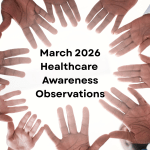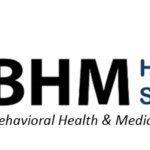
March 2026 Healthcare Awareness Observations
List of February Healthcare Awareness Observations for internal or external awareness campaigns.
Home » Archives for BHM Marketing

List of February Healthcare Awareness Observations for internal or external awareness campaigns.

A new White House initiative coordinates federal agencies, funding, and data-driven goals to expand addiction treatment and recovery, with key signals for healthcare payers.

The recent ARPA-H announcement outlining the ADVOCATE initiative signals a medium-to-high strategic impact for payers over the next 3–7 years.


A review of how transparency evolved in 2025, why it became a test of organizational credibility, and what healthcare leaders should expect in 2026.

A review of how AI adoption accelerated in 2025, why governance became a leadership issue, and what healthcare executives should prepare for in 2026.

A review of how prior authorization evolved in 2025, why it became a key accountability function, and what payer and UM leaders should expect in 2026.

ChatGPT Health is a new, dedicated space within ChatGPT that lets consumers securely connect medical records and wellness apps to receive personalized, physician-informed health guidance while maintaining enhanced privacy protections.

As 2023 draws to a close, BHM Healthcare Solutions reflects on a year marked by remarkable achievements and growth.
Value-based care reimbursement models (VBR) are becoming a popular choice for many healthcare providers and payers, as fee-for-service, (and traditional incentive based payment models), are phased out. According to a recent McKesson survey “Journey to Value: The State of Value-Based Reimbursement in 2016,” 58% of payers and hospitals are planning to adopt value-based care reimbursement models.